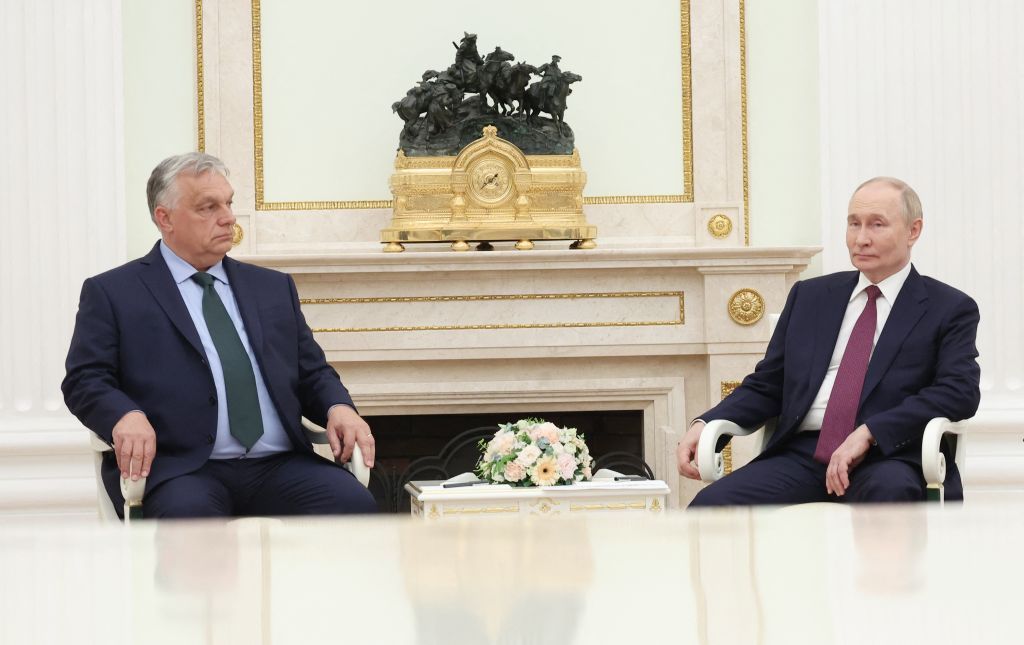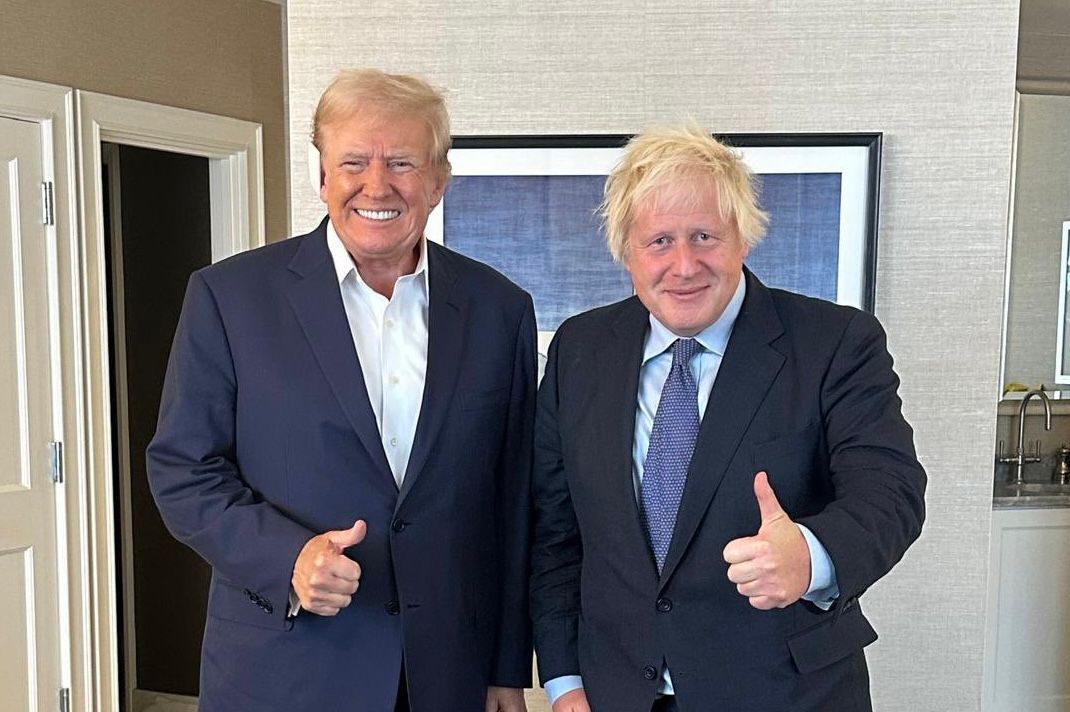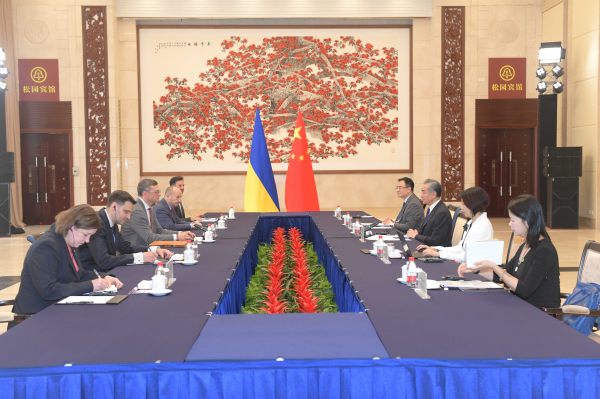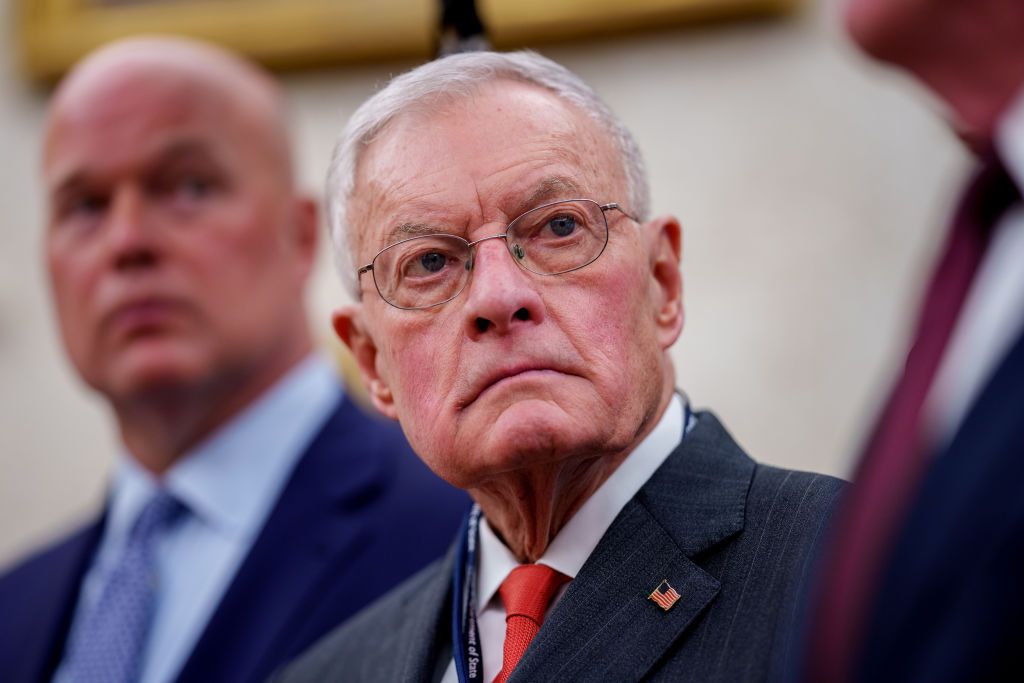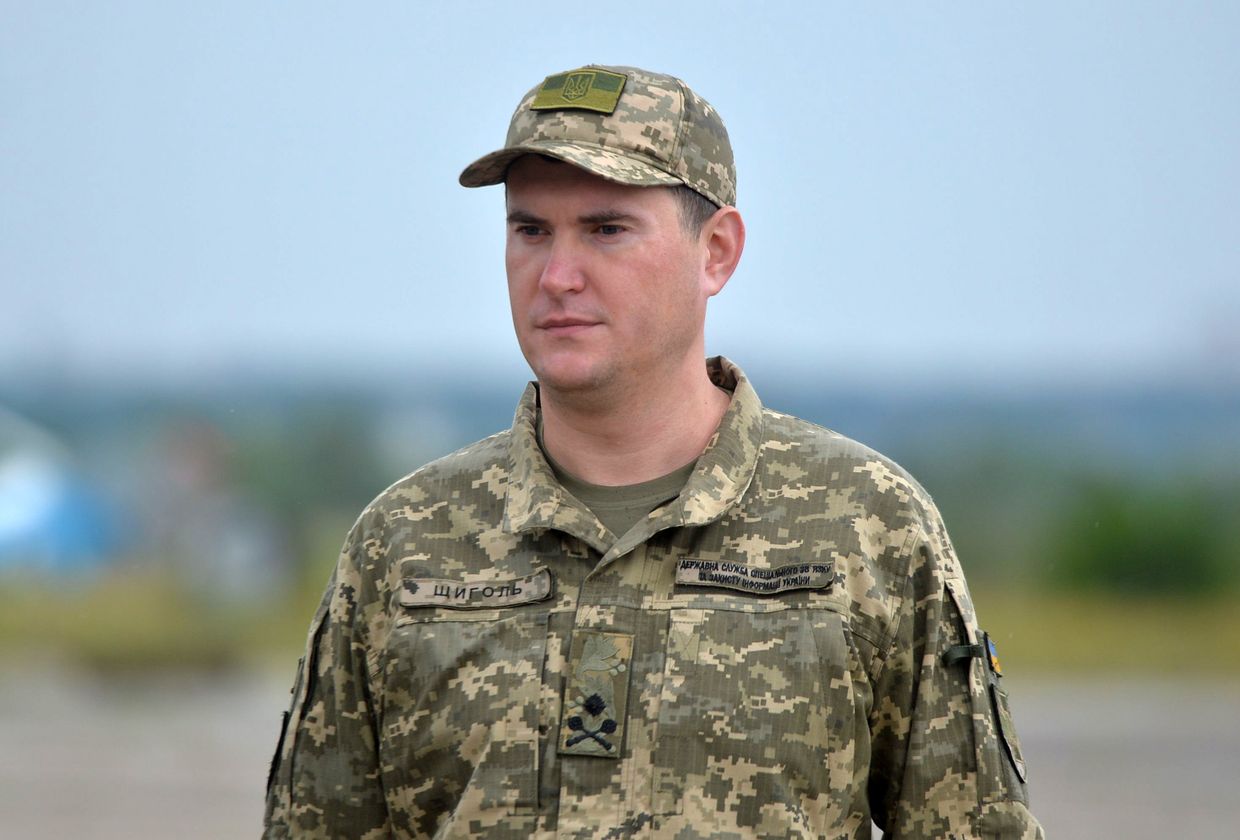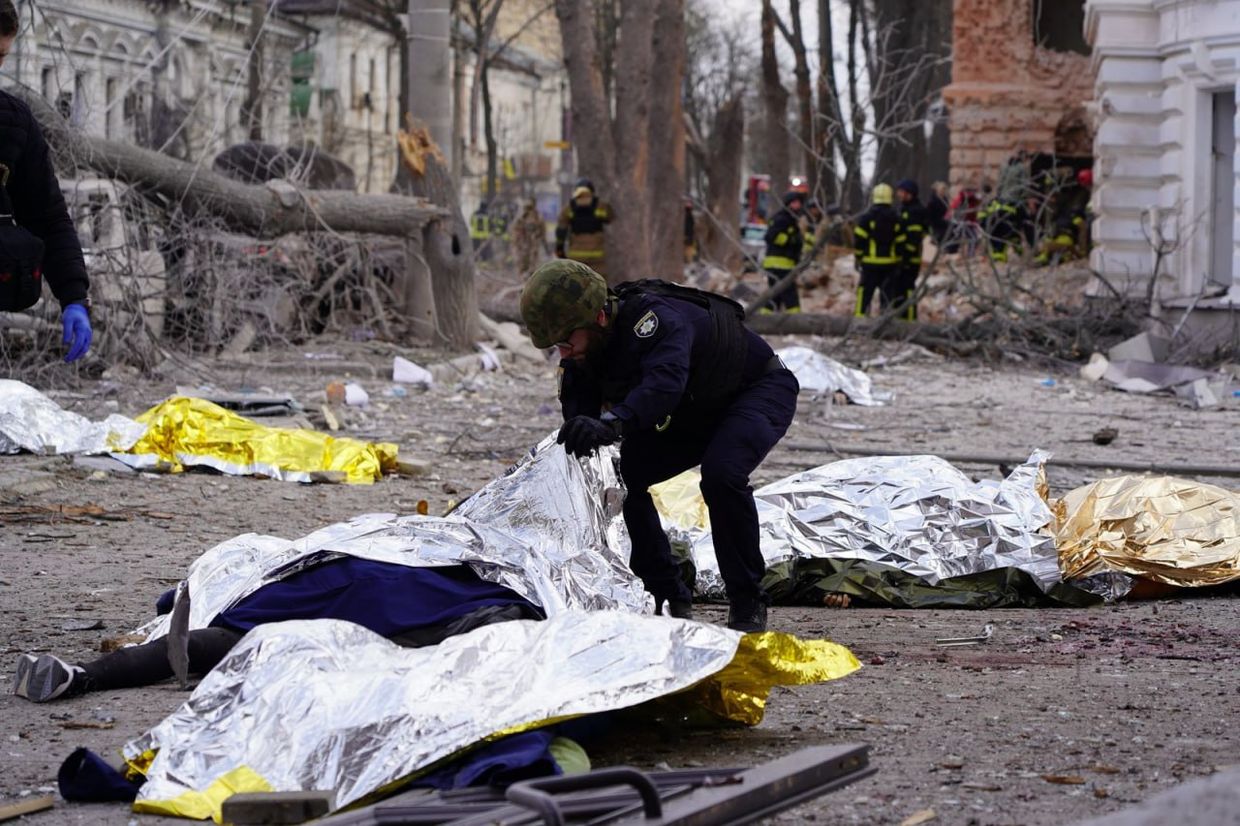Over the past week, several developments suggest that momentum might be building for peace talks in Ukraine.
Firstly, Ukraine appears to have made significant concessions in negotiations with bondholders, indicating the prospect of a debt restructuring by September. This urgency only makes sense if there is an expectation that the war might end soon, allowing Ukraine to access markets to support reconstruction. Eurobonds have rallied hard since July 22, reflecting how favorable the deal is for bondholders.
Secondly, Hungarian Prime Minister Viktor Orban's controversial visits to Kyiv, Moscow, Beijing, and Mar-a-Lago have stirred speculation. There is no smoke without fire, surely.
Thirdly, former U.K. Prime Minister Boris Johnson's trip to Mar-a-Lago resulted in him publishing a peace plan for Ukraine. Notably, Johnson seems to have softened his stance on not giving territorial concessions to Russia.
Fourthly, Ukrainian Foreign Minister Dmytro Kuleba's visit to China, the first since the full-scale invasion, resulted in a joint communique indicating Ukraine's inclusion in the Belt and Road Initiative and acceptance of the One China policy. Kuleba emphasized the need for serious peace talks with Russia, and mentioned a potential Chinese-Brazilian peace deal, previously downplayed by Ukraine. The Saudi Arabian foreign minister was also in Kyiv a little while ago – again, a first post-full-scale invasion.
Fifthly, recent opinion polls suggest changing sentiments in Ukraine toward making concessions.
My base case since the full-scale invasion has been, a) Russia withdraws to its position as of before the full-scale invasion; b) Ukraine agrees to discussions over the long-term future of Crimea and the Russian-occupied parts of Donetsk and Luhansk oblasts; c) no immediate commitment on NATO membership for Ukraine, but serious security guarantees from the West; and, d) Ukraine gains European Union membership.
There is growing fear that if Republican presidential candidate Donald Trump wins in November, Western support for Ukraine might diminish, making it crucial for Ukraine to negotiate from a position of relative strength beforehand. Notably, the West is front-loading disbursements to Ukraine from the $61 billion U.S. package and the $50 billion from interest on frozen Russian assets. Ukraine is also receiving F-16 fighter jets, indicating substantial military support.
Some in the West may want to secure a peace deal before the U.S. elections to deny Trump a potential victory claim, instead giving it to U.S. President Joe Biden’s administration or Democratic presidential candidate Kamala Harris. Beijing might also prefer a peace deal to avoid a Trump presidency, which could lead to severe trade wars. China's dissatisfaction with Russian President Vladimir Putin's growing ties with North Korea further complicates the situation.
Trump’s selection of Senator J.D. Vance as his vice presidential running mate may be the final straw for China, as they anticipate major trade wars in a second Trump term, or a Vance one, if Trump cannot complete his term, given that he would be the oldest president ever elected. Under Biden, the U.S. has eased up on trade tariffs against China, likely in gratitude for China’s limited support of Russia. China feels it can manage a Harris presidency, while Republican China hawks foresee inevitable conflict.
Putin reportedly desires a deal, with sanctions becoming increasingly embarrassing despite not severely crippling the Russian economy. One might argue that Putin hopes to wait for a Trump victory in November for maximum concessions. However, if China pushes for a deal beforehand, Russia might find it hard to resist. Western sanctions hurt but don't collapse Russia's economy, whereas losing Chinese support would be catastrophic.
There are clear risks. First, any peace involving territorial concessions could politically destabilize Ukraine, creating future opportunities for Putin. Second, Putin might not be serious about peace and could use a ceasefire to regroup for another invasion.
I believe Putin aims to control all of Ukraine and will likely invade again. Therefore, strong security guarantees, similar to Israel's, or NATO membership are crucial for Ukraine in any peace deal. The Budapest Memorandum 2.0 is insufficient.
Editor’s Note: The opinions expressed in the op-ed section are those of the author and do not purport to reflect the views of the Kyiv Independent.



